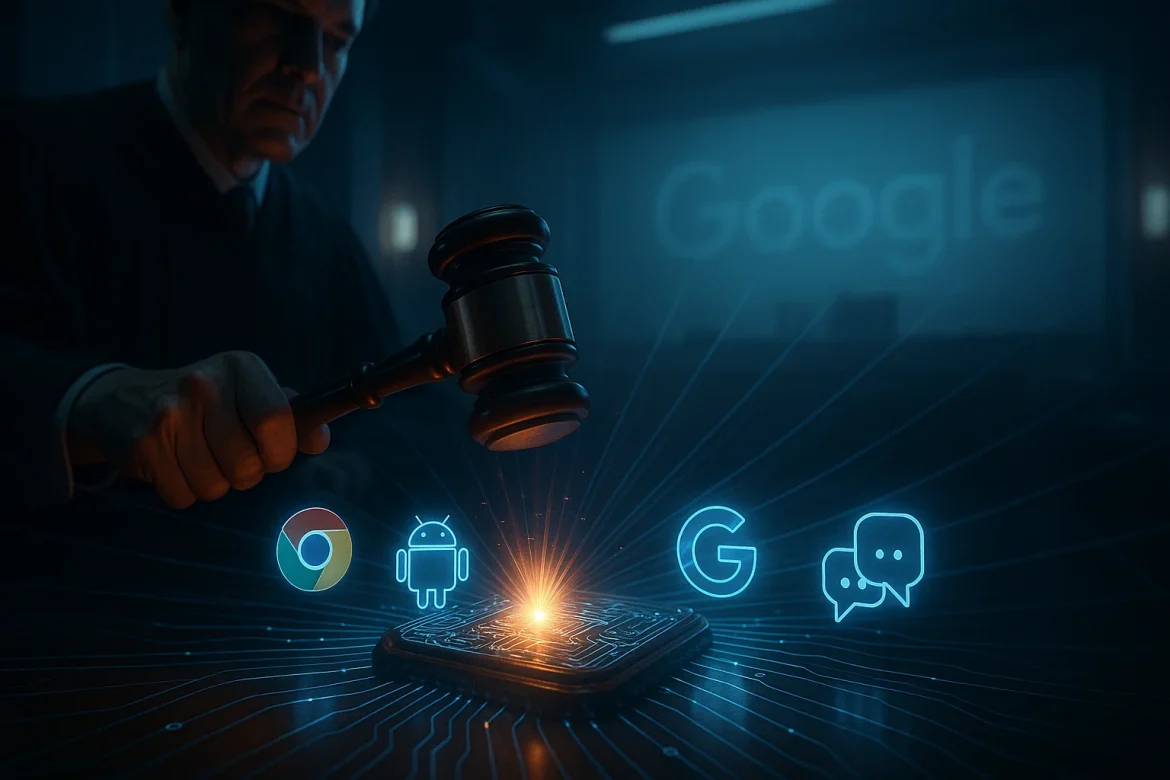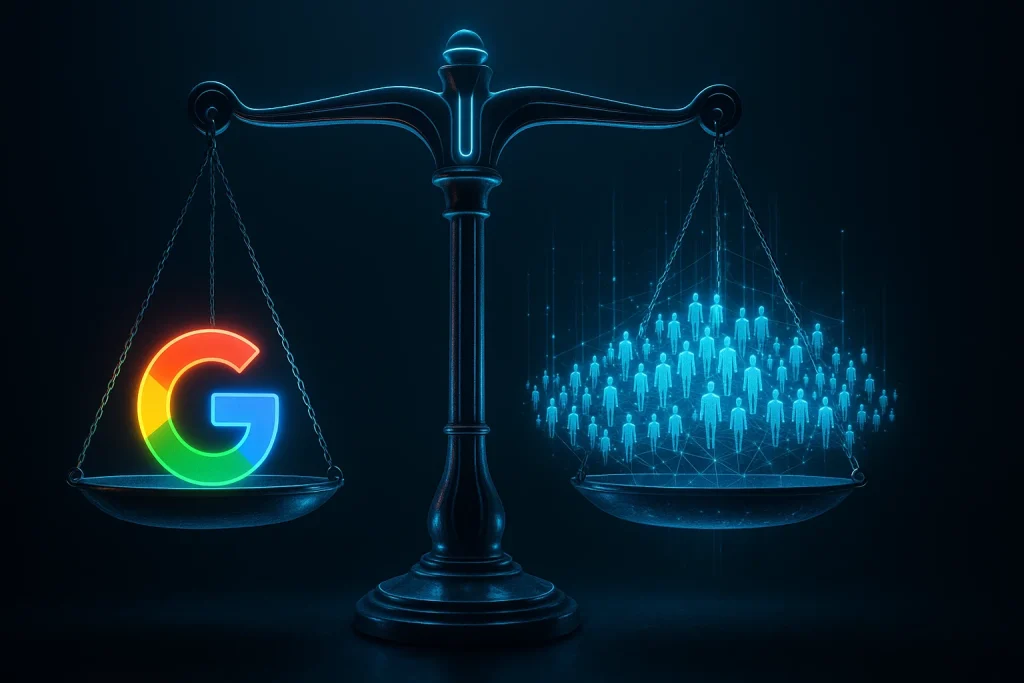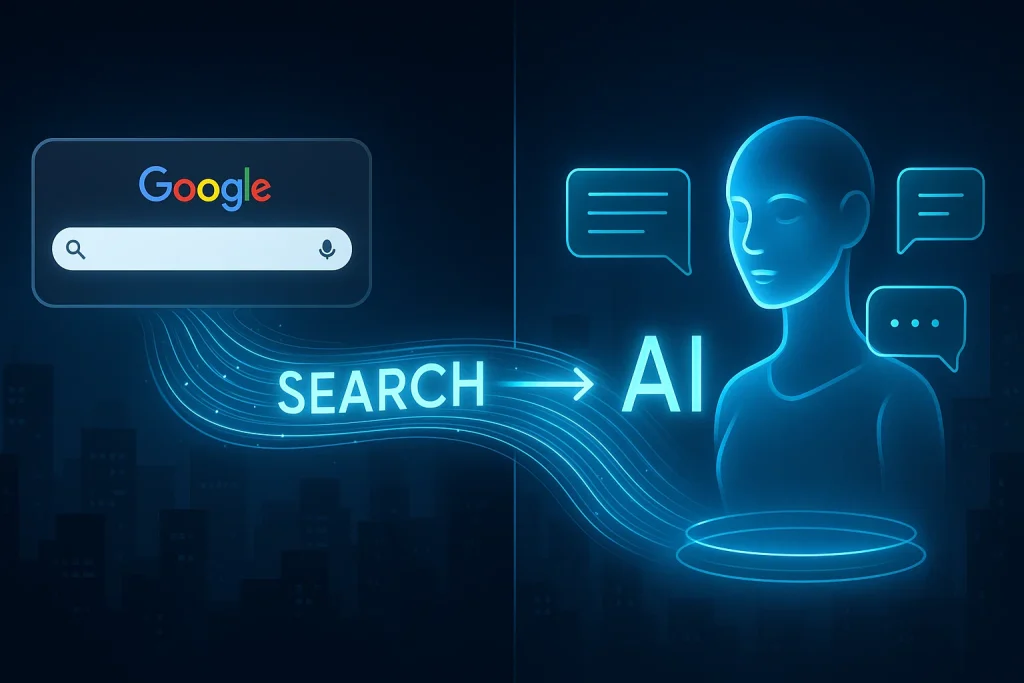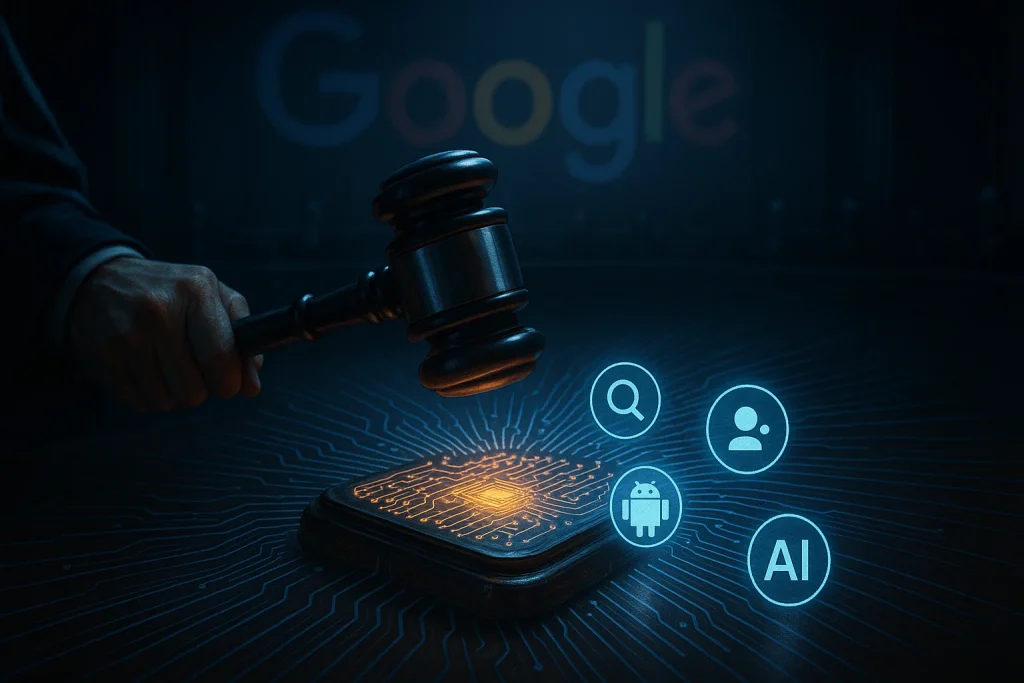The Oxygen We Give Away
Every time we type a search query, install an app, or click “accept” on a privacy policy we didn’t really read, we hand over something more valuable than money: our data. That data — billions of daily searches, maps of human behavior, patterns of curiosity and fear — is the hidden fuel behind the digital empires of our age.
That data is not just about what you searched today. It’s about what billions of us are curious about, what we fear, what we dream of. Chrome isn’t only a browser. Android isn’t just a phone system. Together, they’re two of the world’s biggest sensors of human behavior.
Google, Meta, Amazon, and others have built fortunes not only by offering free tools, but by transforming our habits into streams of behavioral intelligence. Chrome isn’t just a browser. Android isn’t just an operating system. Together, they’re sensors on how the world thinks and acts.
This week’s ruling didn’t dismantle Google. Chrome and Android remain intact. But it did something equally profound: it reminded us that the data we generate as users isn’t just personal — it’s political, economic, and strategic. And governments are finally beginning to draw new boundaries around who controls it.
This is why the antitrust case against Google matters so much. It wasn’t just about a company making deals or dominating markets.
It wasn’t just a legal battle over contracts or market share. It was a question with deep consequences: should one company have the right to control the oxygen of the digital era: out data — all by itself.
What the Judge Said — And Why It Matters
A U.S. court decided that Google would not be forced to sell off Chrome or Android. That was the extreme remedy some regulators pushed for, calling it the “nuclear option.”
But here’s what did change:
-
Google must share certain search data with competitors, instead of locking it all away.
-
Google can no longer sign exclusive deals that forced its apps and search to come pre-installed as defaults.
In simple terms: Google keeps its empire, but it no longer gets to lock all the doors.
The Hidden Lesson for All of Us
Why does this matter to you, sitting at your desk or scrolling on your phone? Because it reminds us of a truth we often ignore: the internet runs on the data we give away.
Our clicks, our searches, our daily habits — they’re the fuel. If that fuel is concentrated in one pair of hands, we’re not just consumers anymore; we’re resources being mined.
The court didn’t take Chrome or Android away from Google, but it did remind the world that data has to circulate. Competition depends on it. Fairness depends on it. And our freedom to choose depends on it.
Every “Agree” click is a contract. Ask yourself what you’re giving in return.
AI: The New Battlefield
The most striking part of the ruling wasn’t even about browsers. It was about the future. Judge Amit Mehta openly said the real risk isn’t only Google’s past dominance in search, but its potential future dominance in AI.
Because tomorrow, we may not “Google” things. We may simply talk to AI assistants like Gemini, ChatGPT, or something we haven’t yet imagined. And if all the data that makes these systems smart is held by one company, then once again, choice disappears before it begins.
This ruling cracks the door open for challengers — for AI models and platforms that don’t come preloaded, but may earn our trust by being better, fairer, or more transparent.
What You Can Take Away as a Reader
This story isn’t just about Big Tech versus governments. It’s about you.
-
Every “Agree” click is a contract. Ask yourself what you’re giving in return.
-
Default isn’t destiny. If your phone or browser pushes one choice, know you can change it.
-
Your data is leverage. If you share it, demand value back — whether in better privacy, better features, or fairer competition.
Because the real power doesn’t just sit in Google’s servers or in a courtroom. It sits, quietly, in the habits of billions of users like us.
Closing Reflection
Google keeps Chrome. Google keeps Android. But it lost something bigger: the right to silently decide how the world consumes knowledge.
And for the rest of us, maybe that’s the lesson worth remembering: the future of the internet isn’t only shaped in legal rulings. It’s shaped in the small choices we make every day — what we search, what we allow, and what we demand in return for the data we give.
FAQ
Q1: Did Google escape a breakup?
Yes. Chrome and Android remain under Google’s control.
Q2: What did the court actually change?
Google must share search data with rivals and stop forcing exclusive contracts on device makers.
Q3: How does this affect me?
In the near future, you might see more choice when setting up your phone or browser — not just Google by default.
Q4: Why is AI such a big part of this case?
Because search and browsing are shifting into AI assistants. Regulators don’t want yesterday’s monopoly to dominate tomorrow’s tools.
Q5: Is this a U.S.-only issue?
No. The decision will influence regulators in Europe, the Middle East, and Asia as they rethink how to govern Big Tech.





